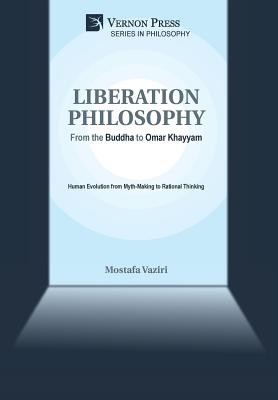
- We will send in 10–14 business days.
- Author: Mostafa Vaziri
- Publisher: Vernon Press
- ISBN-10: 1622735315
- ISBN-13: 9781622735310
- Format: 15.2 x 22.9 x 1.9 cm, hardcover
- Language: English
- SAVE -10% with code: EXTRA
Reviews
Description
The critical narrative of this interdisciplinary book offers a first-time look at the interrelationship between biology, mythology and philosophy in human development. Its daring premise follows the trajectory of human thought, starting with the biological roots of fear and the original need for religion, truth-seeking, and myth-making. The narrative then innovatively links a number of maverick philosophical teachings over the centuries, from pre-Buddhist times to the Buddha, from Epicurus and Pyrrho to Lucretius, and eventually to the seminal poetry of Omar Khayyam. These emergent philosophies exemplified liberation from the grasp of mythical and religious thinking and instead espoused an empirical and joyful mind. The narrative concludes with a look at the emancipating philosophical movement that resulted in the European Enlightenment, and it suggests that the philosophical teachings explored in the book may offer the potential for a second, broader Enlightenment.
EXTRA 10 % discount with code: EXTRA
The promotion ends in 20d.16:25:52
The discount code is valid when purchasing from 10 €. Discounts do not stack.
- Author: Mostafa Vaziri
- Publisher: Vernon Press
- ISBN-10: 1622735315
- ISBN-13: 9781622735310
- Format: 15.2 x 22.9 x 1.9 cm, hardcover
- Language: English English
The critical narrative of this interdisciplinary book offers a first-time look at the interrelationship between biology, mythology and philosophy in human development. Its daring premise follows the trajectory of human thought, starting with the biological roots of fear and the original need for religion, truth-seeking, and myth-making. The narrative then innovatively links a number of maverick philosophical teachings over the centuries, from pre-Buddhist times to the Buddha, from Epicurus and Pyrrho to Lucretius, and eventually to the seminal poetry of Omar Khayyam. These emergent philosophies exemplified liberation from the grasp of mythical and religious thinking and instead espoused an empirical and joyful mind. The narrative concludes with a look at the emancipating philosophical movement that resulted in the European Enlightenment, and it suggests that the philosophical teachings explored in the book may offer the potential for a second, broader Enlightenment.


Reviews